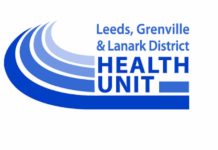by William J. Langnberg, M.Sc. Environmental Biology;
former Researcher/Lecturer, Kemptville College
When I tell the public that I have a Covid-19 potential antidote growing in my back yard, I receive the response: “Wow, that’s a bold statement!” Certain herbs contain lots of the antioxidant Rosmarinic Acid. Rosmarinic acid (RA) is a caffeic acid ester and a naturally-occurring phenolic plant-derived compound in a vast number of herbs belonging to the Lamiaceae family, such as Rosmarinus officinalis, from which it was initially isolated.
RA has been extensively studied since early 2019. It became recognized as the most powerful antioxidant, meaning that this phytochemical is able to neutralize Free Radicals, oxygen molecules that lose electrons, and as a result become very unstable. These unstable molecules steal electrons from healthy molecules in our body. This stealing business has become known as “Oxidative Stress”, which leads to various diseases, such as cancer. Oxidative Stress is like the rusting of a car. Some factors that lead to oxidative stress are radiation, smoking, alcohol consumption, diabetes, pesticides, and / or being under extreme stress.
While in the waiting room at my local family doctor’s office in Kemptville back in 2003, I read in a family magazine an article on “Antioxidants and how they neutralize Free Radicals”. This article even included a picture of the antioxidant neutralizing the free radical, which I copied. The article made me aware of the importance of natural plant-derived antioxidants found in fruits and vegetables to our health.
Over the years, I learned from various researchers that RA intervenes in carcinogenesis in different ways, including tumor cell proliferation, apoptosis, metastasis, and inflammation. I also learned that RA exerts powerful antimicrobial effects. The meat processing industry began to use RA in meat processing to improve the keeping quality of meat. Furthermore, it became known that RA is anti-inflammatory, anti- diabetic, and even works as an antidepressant.
My interest in RA grew. Being a former researcher at KCAT (Kemptville College), I began to research peer reviewed scientific papers and discovered that RA was also antiviral. Researchers in China were able to control enterovirus 71 with Rosmarinic Acid in 2019. Continued research into 2020 showed that researchers were able to control and halt infections by SARS-CoV-2 virus (Coronavirus) with RA, which stops the virus form attaching to human cells at their binding site (Ace2) before an infection takes place.
In 2019, the UK had one of its most serious outbreaks of the Asian Bird Flu caused by the Asian Avian Infectious Bronchitis Virus (Corona Virus), which, as a result, led to devastating economic losses in the County of Suffolk, as 225,000 birds had to be killed. This devastating virus outbreak led to virus research at the Department of Health Science at the University of Lithuania. RA extracts from Anise Hyssop, Oregano, Tansy, Sage, Winter Savory were successfully used against this race of the Corona virus.
During the spring of 2020, the antiviral research picked up around the globe. Researchers at the Department of Biochemistry at Southwestern University in Georgetown, Texas, have been studying since 2010 the antiviral properties of RA in various basils, such as Ararat Basil, Blue Spice Basil, and Spicy Globe Basil. Ararat Basil came out on top in providing antiviral properties. Ararat Basil and Spicy Globe Basil have been available as potted plants at the Kemptville Farmers’ Market, all from home-produced seed.
Through papers obtained from the University of Teheran, Iran, I was able to assemble a list of herbs and their RA concentrations. The top five culinary herbs in the family of Lamiaceae, with their RA concentrations (in mg/gm) are: Spearmint (58.5); Heal All (56.8); Anise Hyssop (50.6); Garden Sage (39.3); and Lemon Balm (36.5).
I was warned, while attending the Canadian National Herb Association annual conference at the University of Guelph in 2004, that the nutraceutical industry will try to replace the naturally derived antioxidants by manufacturing nutraceuticals synthetically. The industry is planning to do just that with RA. There is a world-wide push to increase production of Rosmarinic Acid (RA).
The Winchester District Hospital sent out a Library leaflet online recently warning about over using synthetically-produced antioxidants, stating that it is easy to overdose on synthetically-produced antioxidants. Using nutraceuticals is not the same as using naturally plant-derived antioxidants.
Herbs in the Lamiaceae, containing large amounts of RA, can be used in teas and salads. Antioxidants, such as Rosmarinic Acid, will do its natural work: cleaning up / neutralizing Free Radicals, as these make us more susceptible to infections. Rosmarinic Acid helps us to build and strengthen our immune system and guard us against bacteria and viruses, such as Covid-19.









As a reader of the NG Times, I appreciated this article and it’s studies on Rosmarinic Acid and it’s antiviral properties, especially during these times. Let’s start including an Herb Garden in our backyards. Thank-you for the submission Mr. Langnberg!